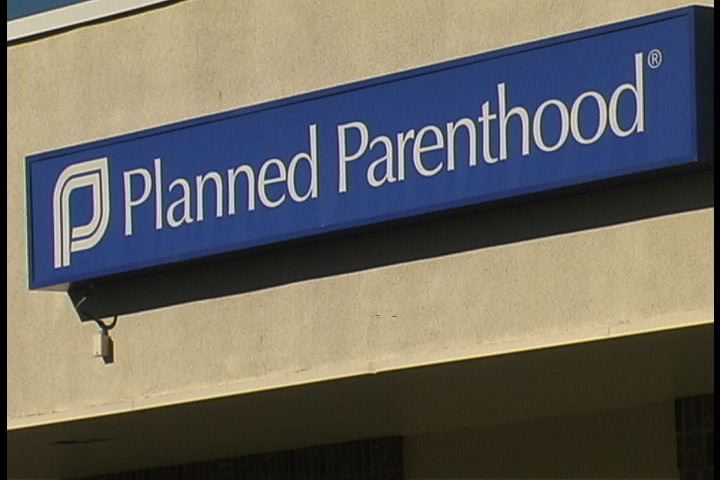On February 1, 2011 a Planned Parenthood sting video was released by Live Action, a pro-life group known for its investigative journalism. The video features a man and a woman posing as sex traffickers inquiring about contraceptives, STD testing and abortions at a New Jersey Planned Parenthood clinic. They are explicit about their involvement in the commercial sex industry and their use of illegal immigrant sex slaves as young as 14  years old. The video showed the Planned Parenthood clinic manager explaining tactics to evade mandatory reporting laws, directing the traffickers to an abortion clinic that will ask fewer questions and giving them tips on how to receive cheaper birth control. In response, Planned Parenthood fired the New Jersey clinic manager who appeared in the video providing assistance to the traffickers.
years old. The video showed the Planned Parenthood clinic manager explaining tactics to evade mandatory reporting laws, directing the traffickers to an abortion clinic that will ask fewer questions and giving them tips on how to receive cheaper birth control. In response, Planned Parenthood fired the New Jersey clinic manager who appeared in the video providing assistance to the traffickers.
This video is reminiscent of a similar video operation conducted at the Association of Community Organizations for Reform Now (ACORN), an organization that provides housing assistance and services to low-income people. When the ACORN undercover video, produced by James O’Keefe and Hannah Giles, was released September 2009, many were  shocked by the organization’s apparent willingness to aid pimps in the illegal commercial sex business. O’Keefe and Giles posed as a pimp and prostitute looking for help with their taxes and housing. The video shows O’Keefe and Giles receiving tax tips from an ACORN employee after explicitly telling the ACORN employee that they are involved in the commercial sex industry by prostituting foreign minors.
shocked by the organization’s apparent willingness to aid pimps in the illegal commercial sex business. O’Keefe and Giles posed as a pimp and prostitute looking for help with their taxes and housing. The video shows O’Keefe and Giles receiving tax tips from an ACORN employee after explicitly telling the ACORN employee that they are involved in the commercial sex industry by prostituting foreign minors.
For ACORN, O’Keefe’s undercover video proved detrimental. Once the video was released, ACORN’s reputation was tarnished, causing huge losses in federal and private funding – forcing the company to close offices around the nation. Though Planned Parenthood has claimed its share of controversy over providing abortion services, aiding sex traffickers is a new strike against the group. According to a Washington Post article “Planned Parenthood receives tens of millions of dollars each year from the federal government to provide non-abortion family planning services to low-income people.” If the effects of the ACORN video are any indication of Planned Parenthood’s fate, the organization could suffer serious, and perhaps irreversible, damage.
According to a Washington Post article “Planned Parenthood receives tens of millions of dollars each year from the federal government to provide non-abortion family planning services to low-income people.” If the effects of the ACORN video are any indication of Planned Parenthood’s fate, the organization could suffer serious, and perhaps irreversible, damage.
 Traffick911, Shared Hope International, and other advocates have partnered for the national
Traffick911, Shared Hope International, and other advocates have partnered for the national  Jay-Z’s catchy hit from 2000, hasn’t lost any novelty during its ten year run in the music industry. It even costs $1.29 on iTunes—the price reserved for only the most popular songs within the virtual-jukebox—instead of the standard $.99. In a culture where pimps are idealized as wearing bright orange top-hats, luxurious furs and sporting fancy canes, who wouldn’t want to be “doin’ big pimpin’ up in NYC”? I offer two basic reasons why becoming a pimp can be so appealing in 2010, but please remember, my rudimentary analysis is by no means exhaustive. I simply suggest that the promise of being cool and making lots of money can be a deadly combination that has created an enticing outlet for the up-and-coming commercial sex entrepreneur.
Jay-Z’s catchy hit from 2000, hasn’t lost any novelty during its ten year run in the music industry. It even costs $1.29 on iTunes—the price reserved for only the most popular songs within the virtual-jukebox—instead of the standard $.99. In a culture where pimps are idealized as wearing bright orange top-hats, luxurious furs and sporting fancy canes, who wouldn’t want to be “doin’ big pimpin’ up in NYC”? I offer two basic reasons why becoming a pimp can be so appealing in 2010, but please remember, my rudimentary analysis is by no means exhaustive. I simply suggest that the promise of being cool and making lots of money can be a deadly combination that has created an enticing outlet for the up-and-coming commercial sex entrepreneur. the “ghetto-fab” lifestyle. Just ask Border’s bookstore sales representative Margaret Rhatican about her experiences working in a place where you are sure to find the story of A Pimp’s Life within a series of books about “working the streets.” Just in case one needs a little extra guidance, Amazon offers The Pimp Game: Instructional Guide for pimps in training. In the world of cinema, movies like
the “ghetto-fab” lifestyle. Just ask Border’s bookstore sales representative Margaret Rhatican about her experiences working in a place where you are sure to find the story of A Pimp’s Life within a series of books about “working the streets.” Just in case one needs a little extra guidance, Amazon offers The Pimp Game: Instructional Guide for pimps in training. In the world of cinema, movies like  A pimp is not only a member of the “awesome-elite,” he’s rolling in the dough. It’s the most secure job in an un-secure economy. It’s “recession proof,” says Linda Smith in her book
A pimp is not only a member of the “awesome-elite,” he’s rolling in the dough. It’s the most secure job in an un-secure economy. It’s “recession proof,” says Linda Smith in her book What can be done to take the glitter and glamor out of the pimp-life? Change the vernacular. Searching the words trafficker, rapist, or abuser does not elicit the same Google images of fur, hats, and fancy canes as the pimp search, but instead, reveals truer depictions of the atrocity associated with each term. This necessary shift will take time and a complete transformation in society’s ingrained perceptions. Would a different approach that could act as a catalyst for such a change be more effective? Demi Moore and Ashton Kutcher think it’s possible. They have started a trend focusing on positive reinforcement with the
What can be done to take the glitter and glamor out of the pimp-life? Change the vernacular. Searching the words trafficker, rapist, or abuser does not elicit the same Google images of fur, hats, and fancy canes as the pimp search, but instead, reveals truer depictions of the atrocity associated with each term. This necessary shift will take time and a complete transformation in society’s ingrained perceptions. Would a different approach that could act as a catalyst for such a change be more effective? Demi Moore and Ashton Kutcher think it’s possible. They have started a trend focusing on positive reinforcement with the





